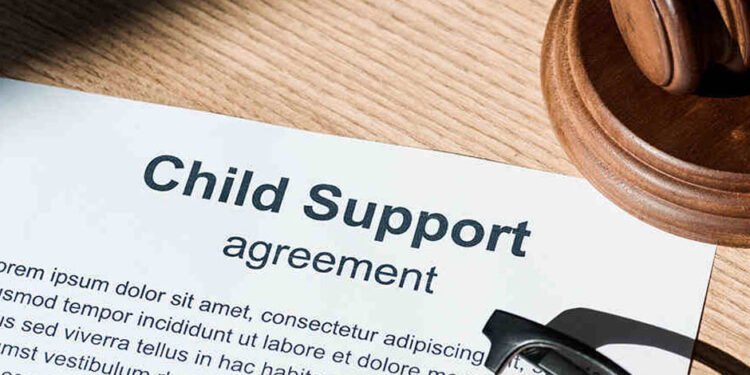When a parent suffers a significant injury, it can have far-reaching effects not only on their health and well-being but also on their financial obligations, including child support payments. If you find yourself in this situation, understanding how your injury may impact child support can help you navigate potential challenges. This article will explore the various aspects of how injuries can influence child support payments and the steps you can take to address any changes.
Understanding Child Support Payments
Child support is a legal obligation that one parent pays to the other to provide financial assistance for the upbringing of their child or children. This support is typically calculated based on several factors, including:
- Income of both parents: The income level of each parent is a crucial factor in determining child support payments. A change in income, such as losing a job or sustaining an injury that affects work capacity, can lead to a reassessment of these payments.
- Custody arrangements: The amount of time each parent spends with the child can influence child support calculations. Typically, the non-custodial parent pays child support to the custodial parent.
- Child’s needs: The specific needs of the child, including education, healthcare, and extracurricular activities, also play a role in determining the appropriate amount of support.
How Injuries Can Affect Child Support Payments
Injuries can impact child support payments in several ways, depending on the severity of the injury and its effects on a parent’s financial situation. Here are some key considerations:
1. Changes in Income
If an injury results in a parent being unable to work or significantly reduces their ability to earn income, it can affect their child support obligations. For example:
- Short-term injuries: A temporary injury may lead to a short-term loss of income, which can make it challenging for a parent to meet their child support obligations.
- Long-term disabilities: More severe injuries can result in permanent disabilities that affect a parent’s ability to work. This may require a formal modification of child support payments to reflect the new financial reality.
2. Increased Expenses
An injury can also lead to increased expenses, which may further complicate child support matters. Parents may face costs related to:
- Medical bills: Treatment and rehabilitation can lead to significant medical expenses, which can strain a parent’s finances.
- Rehabilitation and therapy: Ongoing rehabilitation or therapy may be necessary for recovery, resulting in additional costs that may impact the ability to pay child support.
3. Potential Modifications of Child Support
In cases where an injury significantly alters a parent’s financial situation, it may be necessary to seek a modification of child support payments. To initiate this process, a parent should:
- Document the injury: Keep detailed records of medical treatment, expenses, and any changes in income resulting from the injury. This documentation will be essential for any modification requests.
- Understand state laws: Each state has its own laws governing child support modifications. It’s important to be familiar with these regulations to understand the grounds for modifying payments.
4. Legal Considerations
Navigating child support modifications due to an injury can be complex. Here are some legal considerations to keep in mind:
- Consult with a personal injury attorney: If your injury was caused by someone else’s negligence, you may be entitled to compensation that can help you cover child support payments and other expenses. A personal injury attorney can guide you through the claims process and ensure you receive fair compensation.
- Seek advice from a family law attorney: If you anticipate needing to modify your child support payments due to your injury, consulting with a family law attorney can provide valuable insights into your rights and the modification process.
Steps to Take if Your Injury Affects Child Support Payments
If you find yourself in a situation where your injury may impact your child support obligations, consider taking the following steps:
1. Assess Your Financial Situation
Take stock of your current financial circumstances, including any changes in income and expenses related to your injury. This will help you understand how your injury has affected your ability to meet child support payments.
2. Gather Documentation
Collect all relevant documentation related to your injury, including:
- Medical records detailing your injury and treatment.
- Documentation of lost wages or reduced income.
- Records of any additional expenses incurred as a result of your injury.
3. Communicate with Your Co-Parent
If you anticipate difficulties in making child support payments due to your injury, consider discussing the situation with your co-parent. Open communication can sometimes lead to temporary agreements or adjustments without the need for formal modifications.
4. Seek Legal Assistance
Consulting with legal professionals, such as a personal injury attorney and a family law attorney, can provide clarity and guidance. They can help you understand your rights and options regarding child support modifications.
5. File for Modification if Necessary
If negotiations with your co-parent do not yield an agreement and you believe a modification is necessary, you may need to file a formal request with the court. Ensure that you have all relevant documentation and evidence to support your case.
6. Focus on Recovery
While managing child support matters is important, prioritize your recovery from the injury. Having legal representation can help alleviate some stress, allowing you to focus on healing.
When to Consider Hiring a Personal Injury Attorney
If your injury was caused by someone else’s negligence, hiring a Carlsbad personal injury attorney can be beneficial for several reasons:
- Understanding the value of your case: An experienced attorney can help you assess the value of your injury claim, which may include compensation for lost wages, medical expenses, and pain and suffering.
- Negotiating with insurance companies: Insurance companies often seek to minimize payouts, so having an attorney advocate for your rights can increase your chances of receiving fair compensation.
- Contingency fee arrangements: Many personal injury attorneys work on a contingency fee basis, meaning you only pay if you win your case. This arrangement allows you to pursue legal action without upfront costs.
Conclusion
An injury can significantly impact child support payments, but understanding your rights and options is crucial for navigating this complex situation. Whether your injury leads to a temporary setback or a long-term disability, it’s important to assess your financial circumstances, document any changes, and communicate with your co-parent. Seeking legal assistance from both a personal injury attorney and a family law attorney can help ensure that you are adequately supported through the process. Remember, prioritizing your recovery while managing financial obligations is essential for both you and your child’s well-being.












